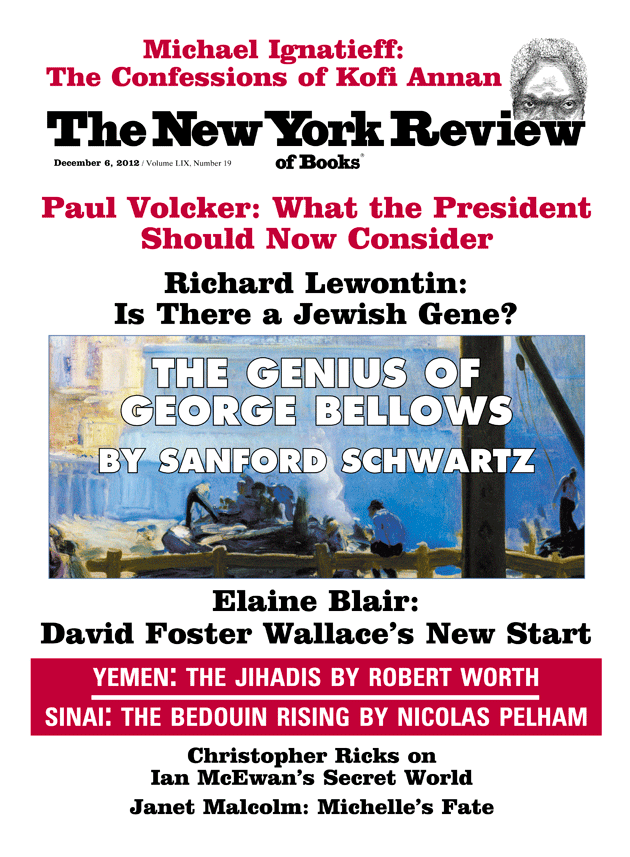In response to:
Joyce: Heroic, Comic from the October 25, 2012 issue
To the Editors:
I enjoyed Fintan O’Toole’s review of my book, James Joyce: A New Biography [NYR, October 25]. However, at the outset he makes a logical error that leads him to misconstrue what I have written about Joyce transforming his youthful passion for religion into a commitment to art, and being prepared to suffer for it. Against this, O’Toole argues that “his share of human suffering” had nothing to do with his art, and he was perfectly willing to enjoy the comfortable life, courtesy of the openhanded Harriet Shaw Weaver.
But I never said otherwise. What I said was that it was art to which he had committed himself, not suffering. Even though he liked to compare himself to enlightenment martyrs like Giordano Bruno, this self-image owes as much to the secular Charles Stewart Parnell as to any religious figure. If he had to suffer he was quite prepared to do so, but what suffering he did undergo was not of his own choosing, and not necessary to his art. It is also worth remembering that, although equally passionate, his commitment as a writer was different from and more enduring than his youthful commitment to religion.
Of course, as Mr. O’Toole points out, where Joyce is concerned the snugly fitting myth of the suffering saint is all too easy to embrace. But I don’t embrace it, as even he acknowledges—“The evidence of [Bowker’s] own book suggests that this kind of piety about Joyce is utterly misplaced.” So why he persists in ascribing this myth to me is a mystery. I was throughout attempting to show that Joyce saw himself only as an artistic martyr, a victim of philistine censors and critics. Some of his Catholic critics blamed his blindness on his unbelief and unconventional lifestyle, but not me.
Sadly, it seems, I have failed to convince Mr. O’Toole, but as he has some kind words to say about my book I must not be too churlish.
Gordon Bowker
London, England
This Issue
December 6, 2012


